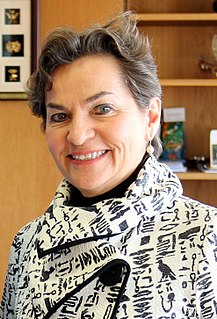A Quote by Craig Venter
The Janus-like nature of innovation - its responsible use and so on - was evident at the very birth of human ingenuity, when humankind first discovered how to make fire on demand.
Related Quotes
No matter how exotic human civilization becomes, no matter the developments of life and society nor the complexity of the machine/human interface, there always come interludes of lonely power when the course of humankind, the very future of humankind, depends upon the relatively simple actions of single individual.
I am convinced that an electronic machine, no matter how smart and intelligent, being still a mere spatial structure in concept, can neither innovate nor even understand the self-evident proposition: 'No spatial structure can be a representation of any feeling'. Such innovation can only be a work of a non-spatial mind, like a human being, and only such innovation, it should be acknowledged, can pave the way for further scientific achievements.
I really discovered [Dr.Strange] through hearing about this film and first meeting Scott [Derrickson] and getting into it and just opening up and saying, "Okay, this is, like all comics, very much of its era," and my first question was, 'How do you make this film? Why do you make this film now?' and the answers were so enticing that I was like, "I'm in."
Just as Darwin discovered the law of evolution in organic nature, so Marx discovered the law of evolution in human history; he discovered the simple fact, hitherto concealed by an overgrowth of idealogy [sic], that mankind must first of all eat and drink, have shelter and clothing, before it can pursue politics, science, religion, art etc.
When the Internet first came into public use, it was hailed as a liberation from conformity, a floating world ruled by passion, creativity, innovation and freedom of information. When it was hijacked first by advertising and then by commerce, it seemed like it had been fully co-opted and brought into line with human greed and ambition.
I believe that the basic nature of human beings is gentle and compassionate. It is therefore in our own interest to encourage that nature, to make it live within us, to leave room for it to develop. If on the contrary we use violence, it is as if we voluntarily obstruct the positive side of human nature and prevent its evolution.
While [Plato] affirmed with emphasis that the place of the individual in society should not be determined by birth or wealth or any conventional status, but by his own nature as discovered in the process of education, he had no perception of the uniqueness of individuals. For him they fall by nature into classes, and into a very small number of classes at that.





































